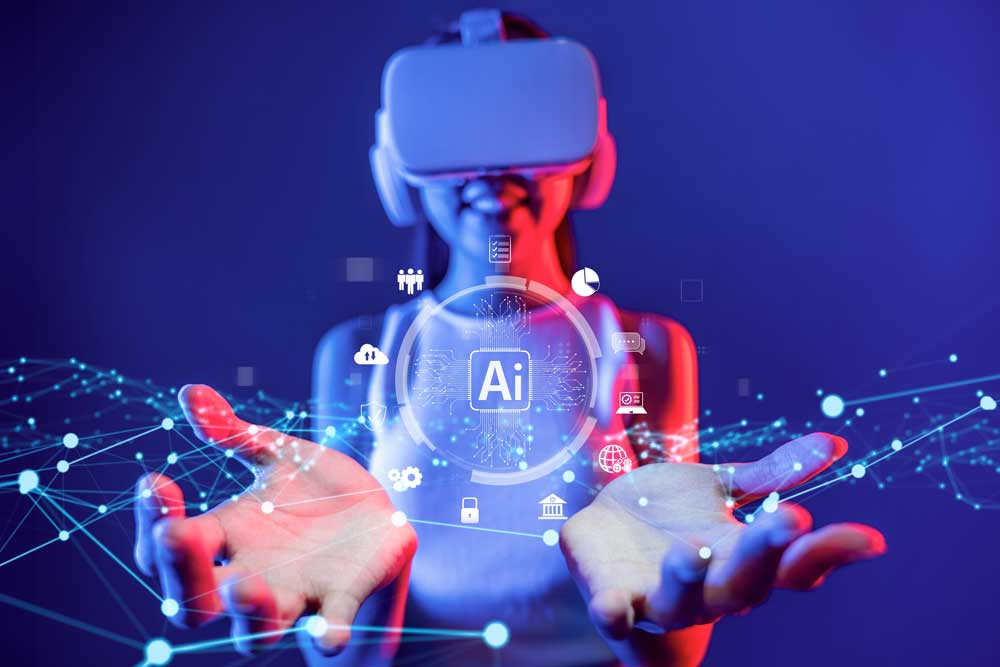Artificial Intelligence (AI) stands at the forefront of technological innovation, reshaping industries and societies worldwide. From streamlining operations in healthcare to optimising financial strategies, AI's influence permeates virtually every aspect of modern life. As technological advancements accelerate, so does the demand for individuals skilled in harnessing the power of Artificial Intelligence. Whether you're a novice intrigued by the possibilities or a seasoned professional seeking to refine your expertise, navigating the landscape of AI learning can pave the way to a multitude of exciting opportunities.
In this digital transformation era, mastering AI is not merely an option but a necessity for those aiming to thrive in a rapidly evolving job market. The significance of AI proficiency extends far beyond technical expertise; it represents a gateway to unlocking innovation, problem-solving, and strategic thinking. Regardless of your background or current skill level, embarking on an AI learning journey holds the promise of personal and professional growth, empowering you to make meaningful contributions in a variety of domains.
What is Artificial Intelligence (AI)?
Artificial Intelligence is the simulation of human intelligence in machines designed to think and act like humans. This includes learning, reasoning, problem-solving, perception, and language understanding. AI can be broadly categorised into two types: Narrow AI, which is designed for a specific task such as voice assistants or image recognition and General AI, which has the potential to perform any intellectual task that a human can do. While General AI is still a theoretical concept, Narrow AI applications are rapidly transforming the landscape of technology and industry.
Different Types of Artificial Intelligence
AI can be classified into three main types:
1. Narrow AI: This is specialised in a single task. Examples include recommendation systems, voice recognition, and chatbots.
2. General AI: A theoretical form of AI that possesses the ability to perform any cognitive task that a human can.
3. Superintelligent AI: An even more advanced form of AI that surpasses human intelligence. This type is still speculative and theoretical.

Why Learn Artificial Intelligence Now?
Learning AI now positions you at the forefront of technological innovation. The AI industry is booming, with applications expanding across various fields, making it a critical skill for future-proofing your career. Additionally, AI knowledge empowers you to contribute to significant technological advancements and solve complex real-world problems. As companies increasingly integrate AI into their operations, professionals with AI expertise are in high demand, offering lucrative career opportunities.
How Long Does It Take to Learn AI?
The time it takes to learn AI varies depending on your background and dedication. For beginners, gaining a foundational understanding of AI concepts and basic skills might take around 3 to 6 months of consistent study. To become proficient and job-ready, it could take anywhere from 1 to 2 years of focused learning and practical experience. The key is to maintain a structured learning path and continually apply your knowledge through projects and practical applications.
How to Learn AI From Scratch - Master the Prerequisite Skills
To start learning AI, you need a solid foundation in several key areas:
● Mathematics: Understanding algebra, calculus, probability, and statistics is crucial as they form the backbone of AI algorithms.
● Programming: Proficiency in programming languages like Python, R or Java is essential. Python, in particular, is widely used in AI for its simplicity and extensive libraries.
● Data Structures and Algorithms: Knowing how to efficiently store, process and manipulate data is fundamental for developing AI models.
How to Learn AI From Scratch - Develop Specialist AI Skills
Once you have a grasp of the prerequisite skills, focus on developing specific AI skills:
● Machine Learning (ML): Learn the basics of ML, which involves teaching machines to make predictions based on data. Start with supervised learning, then explore unsupervised and reinforcement learning.
o Courses: Platforms like Coursera and DataCamp offer comprehensive ML courses.
o Projects: Work on small projects such as creating a spam filter or a recommendation system to apply your knowledge.
● Deep Learning (DL): A subset of ML that uses neural networks to model and solve complex problems.
o Resources: Utilise resources like Deep Learning Specialization by Andrew Ng on Coursera.
o Practice: Engage in hands-on projects like image classification or natural language processing (NLP) to deepen your understanding.
● Natural Language Processing (NLP): This involves teaching machines to understand and generate human language.
o Courses: Look for NLP courses on platforms like Udacity or edX.
o Applications: Try building chatbots or sentiment analysis tools as practical exercises.
● Computer Vision: This field deals with how computers can gain high-level understanding from digital images or videos.
o Tutorials: Follow online tutorials and courses focused on computer vision.
o Implementation: Implement projects such as object detection or facial recognition to gain practical experience.
How to Learn AI From Scratch - Learn the Essential AI Tools and Packages
Becoming proficient in AI also involves mastering various tools and libraries:
● TensorFlow and PyTorch: These are two of the most popular frameworks for building and training neural networks.
o Tutorials and Documentation: Both have extensive documentation and community support.
o Practice: Build models using these frameworks to understand their functionalities.
● Scikit-Learn: A robust library for traditional machine learning algorithms.
o Use Cases: Practice using scikit-learn for tasks such as classification, regression, and clustering.
● Keras: A high-level neural networks API, written in Python and capable of running on top of TensorFlow.
o Ease of Use: Keras is user-friendly and perfect for beginners to start with deep learning projects.
● Jupyter Notebooks: An open-source web application that allows you to create and share documents containing live code, equations, visualizations, and narrative text.
o Interactive Coding: Use Jupyter notebooks for experimenting with code and documenting your AI projects.
How to Learn AI From Scratch - Creating a Learning Plan and Roadmap
A structured learning plan helps you stay focused and track your progress:
● Set Clear Goals: Define what you want to achieve with your AI learning journey, whether it's a specific project, a job role, or mastering certain skills.
● Break It Down: Divide your goals into manageable tasks and set deadlines for each.
● Stay Consistent: Dedicate regular time slots for learning and stick to them.
● Seek Feedback: Join AI communities and forums to share your work and receive constructive feedback.

How to Learn AI From Scratch - Resources for Learning AI
There are numerous resources available for learning AI:
● Online courses: Platforms like Coursera, Udacity, edX, and DataCamp offer high-quality AI courses.
● Books: Some recommended books include ‘Artificial Intelligence: A Modern Approach’ by Stuart Russell and Peter Norvig, and ‘Deep Learning’ by Ian Goodfellow, Yoshua Bengio, and Aaron Courville.
● Websites and blogs: Follow AI blogs like Towards Data Science, KDnuggets, and the official AI blogs of major tech companies.
● Communities: Join AI communities on platforms like GitHub, Stack Overflow, and Reddit to engage with other learners and professionals.
Conclusion
As you progress, delving deeper into specialised AI domains such as machine learning, deep learning, natural language processing, and computer vision, you refine your abilities and expand your horizons. Familiarising yourself with essential tools and frameworks like TensorFlow, PyTorch and scikit-learn empowers you to turn theory into practice, bringing your ideas to life through hands-on projects and applications.
But learning AI is not a solitary pursuit; it's a collaborative endeavour fuelled by community engagement and shared knowledge. By actively participating in AI communities, forums, and discussions, you gain insights, receive feedback, and stay abreast of the latest developments in the field. Harnessing the collective wisdom of the AI community enhances your learning experience and fuels your motivation to excel.
As you chart your course through the vast landscape of AI learning, remember that the journey is as enriching as the destination. Each challenge you overcome, each concept you grasp, and each project you complete is a testament to your growth and resilience. Embrace the journey with enthusiasm and curiosity, for it is through exploration and experimentation that true mastery is attained.
FAQs
How can I learn AI if I have no prior experience?
Start with the basics of mathematics and programming, then gradually move to AI concepts and tools through structured online courses and practical projects.
Is it necessary to learn programming for AI?
Yes, programming is essential for implementing AI algorithms and models. Python is the most recommended language for beginners.
Can I learn AI on my own?
Absolutely. There are plenty of self-paced online courses, tutorials, and resources available that allow you to learn AI independently.
How to learn AI from scratch?
Begin by mastering the prerequisite skills, then focus on specific AI domains, learn essential tools and create a structured learning plan. Engage in practical projects to apply your knowledge.
How long does it take to become proficient in AI?
It varies based on individual commitment and background. Generally, it can take 1-2 years of focused study and practice to become proficient in AI.